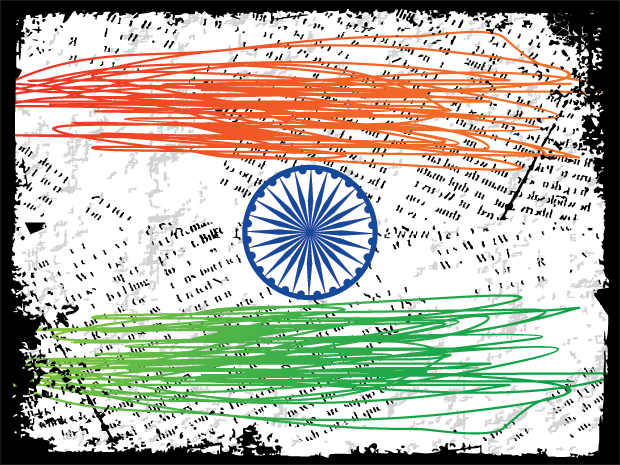Indian sociologist accused of murder in case she says is retaliation for her work
[vc_row][vc_column][vc_column_text]

Eminent sociologist Nandini Sundar, who won the prestigious Infosys Prize for social science in 2010, stands accused of murder in the death of a villager in a region she has studied intensely since 1990.
Two Indian social scientists are among 10 people charged with murder in Chhattisgarh, an Indian state wracked by an ongoing insurgency by Maoist rebels that the academics were actively studying.
Neither Nandini Sundar, an eminent sociologist at Delhi University, nor Archana Presad, a labour historian at Jawaharlal Nehru University, are specifically charged with wielding the weapons that killed villager Shamnath Baghel on 4 November. Instead, the charges filed after a complaint by the wife of the victim suggest that they were complicit in the attack. Sundar has called the complaint, known as first information report, or FIR, “patently absurd”.
“This is a vendetta against all researchers, journalists, lawyers and activists who are willing to expose complete lawlessness of police,” she said, adding that she condemns the killing of the villager.
A large number of Indian and global sociologists have condemned the arrest specifically and the stifling of freedoms of expression and academic inquiry more broadly in India. More than 180 Indian sociologists and more than 30 from outside India signed a statement critical of the arrest. “As sociologists we are forced to condemn the growing nation-wide trend towards the stifling of all voices of dissent from academia, the media and cultural and literary practitioners. Disabling independent research and silencing contrary views undermines the collective ability to build a better future.”
Their statement cited other recent instances: “We note with concern the increasing incidents of attempts to intimidate or falsely accuse members of our profession, be it Prof. Vivek Kumar in Gwalior, Prof. Rajesh Mishra in Lucknow or Prof. M.N. Panini in Jharkhand.”
Baghel was killed, allegedly by Maoist rebels (known as Naxalites), after protesting insurgent activities in the Sukma district of south Chhattisgarh. Baghel and others had started their movement in April, and in May had filed his own complaint against Sundar, Prasad, Vineet Tiwari from the NGO Joshi Adhikar Sansthan, the Communist party’s local state secretary Sanjay Parate and several reputed Maoists for the group’s alleged encouragement of Maoist activities. “According to villagers,” Inspector General of Police SRP Kalluri told the Indian wire service PTI, “Sundar and others went in the village to allegedly threaten them not to oppose the Maoists”. The specific charges are for conspiracy, murder and rioting.
Hostility between academics and the authorities is nothing new.
Sundar’s wide-ranging scholarship has included detailed studies of Chhattisgarh, most recently in a book, The Burning Forest: India’s War in Bastar, released in September. As eSocialSciences described it, “The book is a product of painstaking research and is a vivid account of the human rights abuses by the Maoists and the government and the absence of justice” drawn from Sundar’s 25 years studying the area.
In 2011 Sundar successfully petitioned India’s Supreme Court to disband a state-backed militia known as Salwa Judum that was battling the Maoists. Kalluri was active in directing those “special police officers” and Sundar believes the criminal charges come as “a direct fall-out” from accusing Kalluri for being responsible for violence committed during that period.
“How can we be charged with murder and rioting when we are not even there?” Sundar said in a statement. “This is clearly part of IG Kalluri’s attempt to intimidate and harass journalists, lawyers, researchers, political leaders and human rights activists who have exposed the reign of fake encounters, gang rapes etc. that are going on in Bastar.”
Kalluri, for his part, has linked Sundar directly with the Maoists, saying she was part of a delegation of Maoists that “roamed freely” throughout Bastar in May and threatened villagers trying to defend themselves. “We don’t mind anyone supporting some ideology, but they should not incite innocent tribals to rebel against the state,” Kalluiri said, referring to the indigenous Bastari. “There is sufficient background, there is a prelude, correspondence and evidence.” The complaint, according to an article in The Hindu, includes claims that “Maoists kept telling Baghel that he was being punished because he did not listen to Ms. Sundar and others, and continued opposing them”.
Sundar said the May trip was a fact-finding expedition looking at brutality from all sides. She issued a press release detailing the delegation’s findings, which seems at odds with Kalluri’s claims that Sundar was using a false name.
The authorities were monitoring Bastar had Sundar before this killing. Last month, the police and security forces in Chhattisgarh burnt effigies of Sundar alongside those of activists, writers and a journalist. After Sundar’s arrest, Kullari told NDTV that “activists are enemies because they incite the people of India”.
Historian Ramchandra Guha tweeted: “This vicious and vindictive FIR proves beyond doubt that Chhattisgarh is a police state.”
This article was originally posted at Social Science Space[/vc_column_text][/vc_column][/vc_row][vc_row][vc_column][vc_basic_grid post_type=”post” max_items=”1″ element_width=”12″ grid_id=”vc_gid:1479304327691-d6a06326-a312-6″ taxonomies=”8952″][/vc_column][/vc_row]

